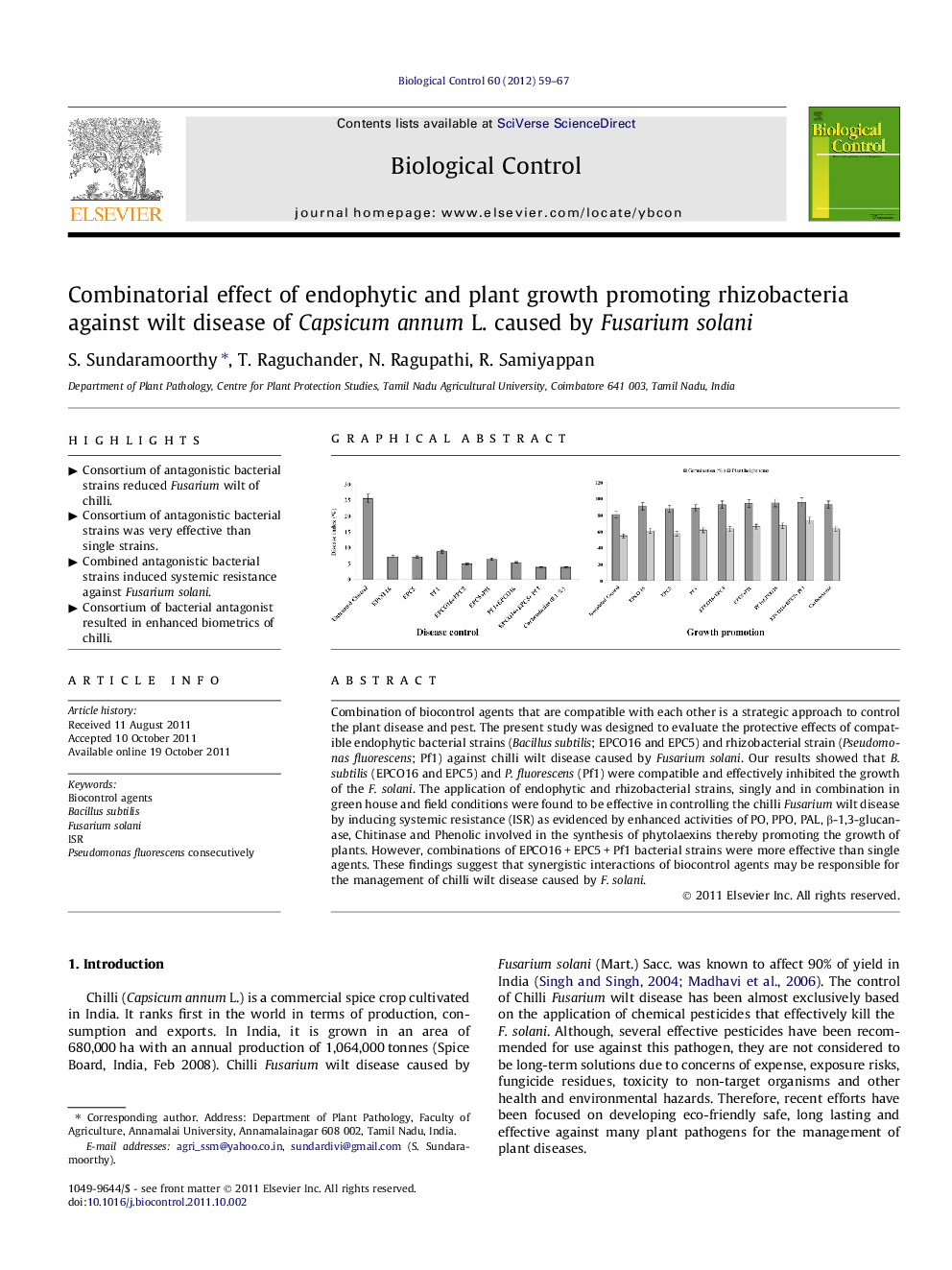| Article ID | Journal | Published Year | Pages | File Type |
|---|---|---|---|---|
| 4504196 | Biological Control | 2012 | 9 Pages |
Combination of biocontrol agents that are compatible with each other is a strategic approach to control the plant disease and pest. The present study was designed to evaluate the protective effects of compatible endophytic bacterial strains (Bacillus subtilis; EPCO16 and EPC5) and rhizobacterial strain (Pseudomonas fluorescens; Pf1) against chilli wilt disease caused by Fusarium solani. Our results showed that B. subtilis (EPCO16 and EPC5) and P. fluorescens (Pf1) were compatible and effectively inhibited the growth of the F. solani. The application of endophytic and rhizobacterial strains, singly and in combination in green house and field conditions were found to be effective in controlling the chilli Fusarium wilt disease by inducing systemic resistance (ISR) as evidenced by enhanced activities of PO, PPO, PAL, β-1,3-glucanase, Chitinase and Phenolic involved in the synthesis of phytolaexins thereby promoting the growth of plants. However, combinations of EPCO16 + EPC5 + Pf1 bacterial strains were more effective than single agents. These findings suggest that synergistic interactions of biocontrol agents may be responsible for the management of chilli wilt disease caused by F. solani.
Graphical abstractFigure optionsDownload full-size imageDownload as PowerPoint slideHighlights► Consortium of antagonistic bacterial strains reduced Fusarium wilt of chilli. ► Consortium of antagonistic bacterial strains was very effective than single strains. ► Combined antagonistic bacterial strains induced systemic resistance against Fusarium solani. ► Consortium of bacterial antagonist resulted in enhanced biometrics of chilli.
